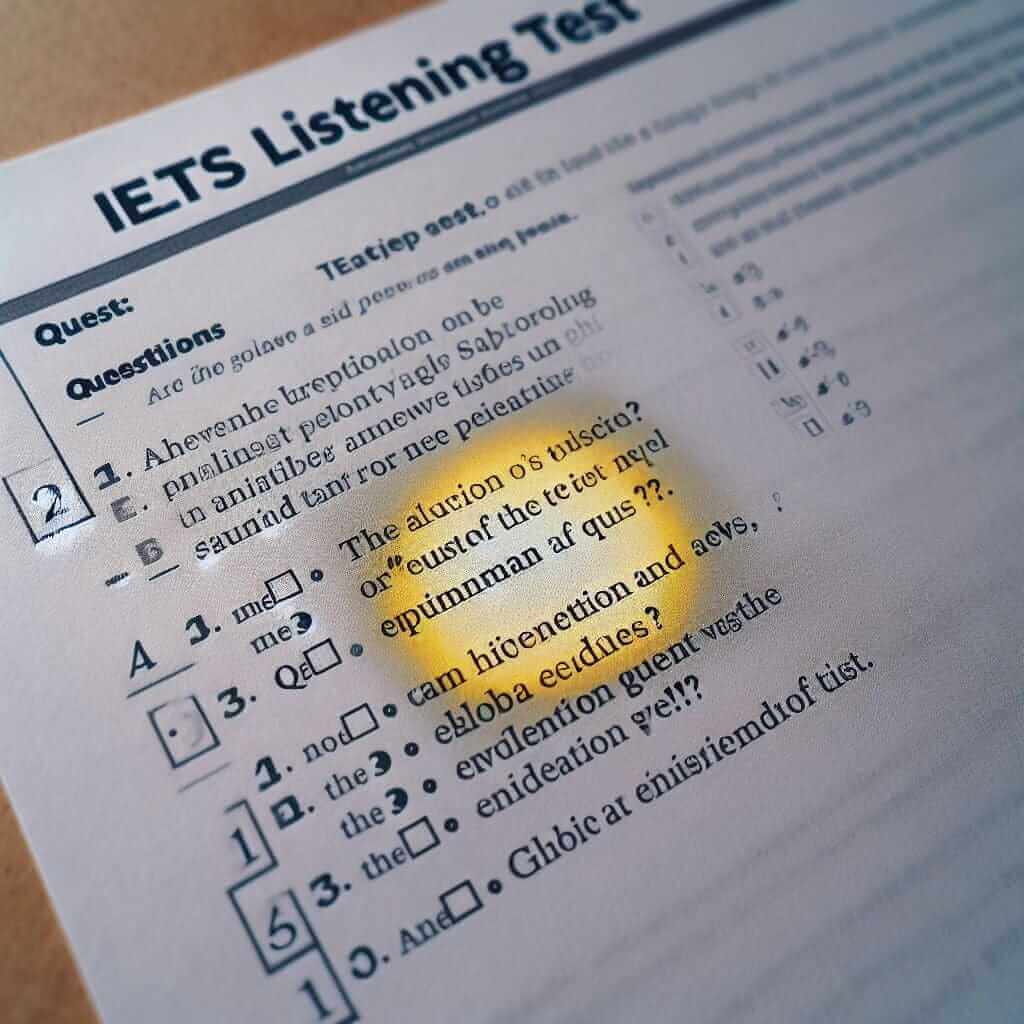As an IELTS instructor with over two decades of experience, I’ve witnessed countless students grapple with the IELTS Listening test. It’s often perceived as a challenging section, but with the right strategies and consistent practice, you can significantly improve your score. This comprehensive guide will provide you with invaluable insights, tips, and techniques to boost your listening skills and confidently approach the IELTS Listening test.
Understanding the IELTS Listening Test
The IELTS Listening test assesses your ability to comprehend spoken English in a variety of contexts. It is identical for both the Academic and General Training modules and consists of four sections, with a total of 40 questions.
Let’s break down the structure:
- Section 1: A conversation between two people in an everyday social setting.
- Section 2: A monologue or conversation in an everyday social setting (e.g., a talk about local facilities).
- Section 3: A conversation between up to four people in an educational or training context (e.g., a student discussion about an assignment).
- Section 4: A monologue on an academic topic (e.g., a university lecture).
You will hear each recording only once, and you will need to answer questions as you listen. The questions become progressively more difficult as the test progresses.
Effective Strategies for IELTS Listening
1. Develop Active Listening Skills
Active listening is crucial for success in the IELTS Listening test. Here are some key techniques:
- Focus on keywords: Pay attention to the essential words in the questions and try to anticipate what kind of information you need to listen for.
- Identify synonyms and paraphrasing: The speakers will often use different words or phrases to convey the same meaning as in the questions.
- Note-taking practice: Develop a system for taking concise and effective notes. Use abbreviations, symbols, and keywords to capture essential information quickly.
2. Expand Your Vocabulary
A strong vocabulary is essential for understanding a range of accents and comprehending spoken language effectively.
- Learn topic-specific vocabulary: Familiarize yourself with common IELTS themes such as education, environment, technology, and health.
- Focus on synonyms and antonyms: Pay attention to words with similar or opposite meanings, as these are often used interchangeably in the recordings.
- Use flashcards and vocabulary apps: Utilize these tools to learn and review new words regularly.
3. Practice with Authentic Materials
Immerse yourself in English by listening to various authentic materials.
- Listen to podcasts and audiobooks: Choose topics that interest you and gradually increase the difficulty level.
- Watch English-language news and documentaries: Pay attention to different accents and speaking styles.
- Engage in English conversations: Find opportunities to practice speaking and listening with native speakers or proficient English speakers.
4. Utilize Practice Tests Effectively
Practice tests are invaluable tools for familiarizing yourself with the test format and identifying your strengths and weaknesses.
- Simulate test conditions: Complete practice tests under timed conditions to build your stamina and focus.
- Analyze your mistakes: Carefully review your answers, paying particular attention to the questions you answered incorrectly. Identify patterns in your errors to target specific areas for improvement.
- Focus on your weaknesses: If you struggle with a particular type of question or accent, dedicate more time to practicing those areas.
Example from an IELTS Listening Test
Let’s look at an example from a Section 1 dialogue:
You will hear:
Man: So, for the insurance claim, we’ll need your policy number. It’s on your documents.
Woman: Let me see. Ah, yes. It’s ABX12345.
Question: What is the woman’s policy number?
Answer: ABX12345
In this example, recognizing the keywords “policy number” helps you focus on the relevant information.
 ielts listening test example
ielts listening test example
Top Tips for Success
- Read the instructions carefully: Don’t rush; understand what is required for each question type.
- Use the time provided wisely: Use the time given to preview questions and anticipate potential answers.
- Don’t get stuck on one question: If you miss an answer, don’t dwell on it. Move on to the next question and try to catch up.
- Check your answers carefully: Ensure you have transferred your answers correctly to the answer sheet, as you will not have time to do so at the end.
Conclusion
Mastering the IELTS Listening test demands consistent effort, strategic practice, and effective time management. By implementing the strategies outlined in this guide and dedicating yourself to regular practice, you can significantly enhance your listening comprehension skills and approach the test with confidence. Remember, your journey to IELTS success is a marathon, not a sprint, so be patient, persistent, and believe in your ability to achieve your desired score!


